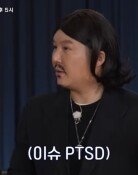[Editorial] A Matter of Systems and Leaders
[Editorial] A Matter of Systems and Leaders
Posted October. 28, 2009 06:46,
The economic gap between the two Koreas has grown further. South Koreas gross national income was 28.3 times that of North Korea in 1998, but is 37.7 times now. Per capita GNP rose from 12.9 times that of the North to 18.1 times over the same period. Trade volume last year was 225.6 times more and exports 383.6 times more. The South also has a commanding lead over the North in average life expectancy and height, freedom and human rights.
When the Korean Peninsula gained independence in 1945 and was divided into two countries, South Korea was far behind North Korea economically because the Japanese colonial government set up industrial facilities in North Korea. The Souths per capita income was 89 dollars in 1961 at the time of the May 16 coup détat, ranking 101st among 125 countries at the time. The North was in the top 50 at 320 dollars. Sixty years later, however, the North has greatly fallen behind in economic power and quality of life.
The market economy and free democracy South Korea embraced are the driving force behind national development. Market economics have improved the lives of employers and workers based on the protection of private property and incentives. North Korea chose the path of a planned economy and communist dictatorship, and has grown inefficient and stagnant. This is because such a system goes against human nature. In the early 1970s, the South overtook the North in per capital income and has since widened the gap.
Another important factor is leadership, especially the direction of administration and ability of former South Korean President Park Chung-hee compared to those of North Koreas first leader Kim Il Sung. Park lifted the worlds poorest nation out of dire poverty with his export-driven strategy, entrepreneurship, heightened spirit of independence, and leadership. His dictatorial rule no doubt left deep scars in democracy and human rights, but as a whole, Park was an outstanding leader. The industrialization that flourished under his leadership laid the foundation for democratization. In contrast, the 50 years of Kims leadership resulted in extreme poverty, hunger, politics of fear, and a generational dictatorship in North Korea.
The huge gap between both sides clearly shows the impact of a government system and leader on a countrys economy and the peoples livelihood. Certain leftists in South Korea, however, blast the South and praise the North, which is a de facto prison camp. With a firm belief in the superiority of a free democracy and free market, political and economic leaders and the media must work to make a more prosperous and freer Republic of Korea.






![“잠만 자면 입이 바싹바싹”…잠들기 전에 이것 체크해야 [알쓸톡]](https://dimg.donga.com/c/138/175/90/1/wps/NEWS/IMAGE/2026/02/23/133404748.3.jpg)
